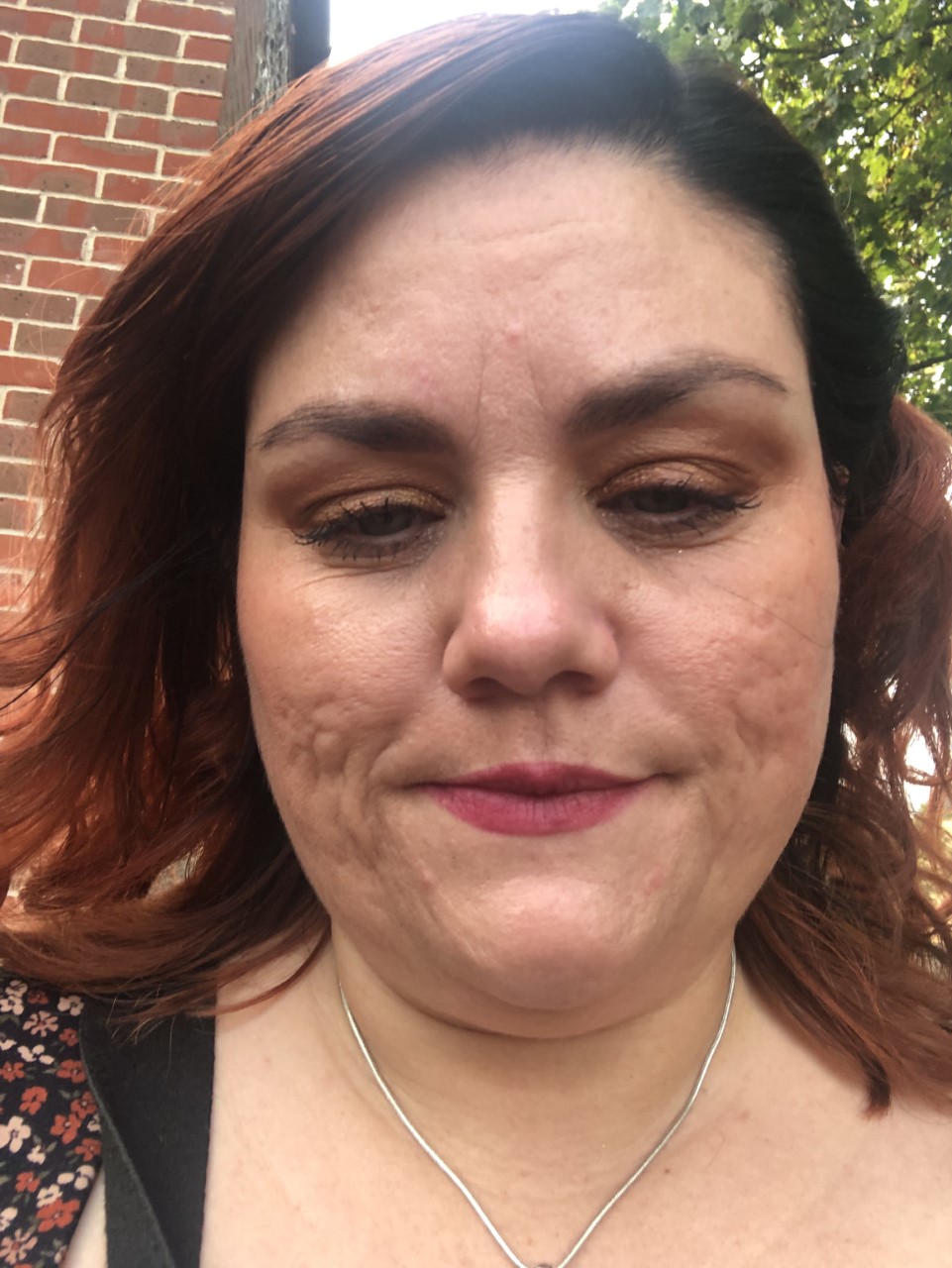My name is Sarah and I’m a passionate beauty entrepreneur and educator who loves all things skin, science, make-up, massage and wellness.
I developed acne at the age of 13, which lasted till I was 25.
In 2001, I decided to pursue my dream of working in the entertainment industry as a TV presenter and singer.
I was working abroad for a holiday company at the time, and I came back home raring to go in November 2001. I was a fresh 22-year-old, and the world was my oyster. Soon after, I got my first screen test for a TV presenter role.

A talented singer, Sarah at one point worked in the entertainment industry.
I arrived at the rehearsal studios in Birmingham, and I got talking to the make-up artist. After all, I’d studied to become a beauty therapist in 1996, so I enjoyed discussing it.
While she was examining my skin, she pointed to my acne scars, sighed, and said, ‘If you get this job… it’s going to take ages to cover them up.’
I had turned up so excited and full of confidence, but that comment knocked the wind out of me. It felt like I’d gone back in time to when I was a 13-year-old on the receiving end of harsh words from bullies who made me feel utterly worthless.
Needless to say, I flunked the screen test. It took a long time to rebuild my self-esteem, but thankfully the experience didn’t dampen my determination. I went on to further my beauty studies and graduated from university in 2009 as a qualified teacher of beauty education.
I had turned up so excited and full of confidence, but that comment knocked the wind out of me.
I love my career, but I’ve often had to deal with insensitive and hurtful remarks.
Other beauty therapists have said to me: “How come you came to be in the beauty industry with such bad skin?”
“It must be difficult to sell skincare and cosmetics with skin like that.”
“If you were taught camouflaging techniques, why not use them?”
I wish they would more carefully consider their stereotypical language around beauty and skincare because defining our skin as ‘good’ and ‘bad’ really isn’t helpful.
Beauty therapists will meet a diverse range of clients in their career, including people with visible differences, so they need to understand how important it is to be respectful – unlike the make-up artist I met during my screen test.
That’s why I tell my students that beauty and wellbeing is never about achieving some outdated notion of perfection, it’s about being your best self with dignity.
I’m extremely passionate about teaching all my students to treat each client with compassion and empathy – while ensuring they all have a strong base of knowledge in skincare, cosmetics, and wellbeing.
They will then be able to put their clients at ease and help them go about their day with confidence.
It would be great to see more progress within the beauty and entertainment industry. People with visible differences have so much to offer, and it would be wonderful to see big brands in these fields taking advantage of this amazing pool of talent.
I wish that there were more opportunities in the music, film, TV and beauty industry and wellness sectors for people with visible differences.
But that will only happen when we start to educate people to be more accepting of people who look different.
Sometimes we might feel uncomfortable because we don’t know how to start conversations about looking different, but we have to start somewhere.
It is only through openness, education, curiosity, communication and honest collaboration, that we can begin to address people’s perceptions.

Then and now: Sarah has newfound confidence, and loves the skins she’s in.
It would be great to see more progress within the beauty and entertainment industry. People with visible differences have so much to offer, and it would be wonderful to see big brands in these fields taking advantage of this amazing pool of talent.
In January 2021, I was re-employed to teach beauty once again – except this time I would be teaching on camera, almost 20 years after my screen test.
Not only did I have to contend with camera angles and tech, I was also apprehensive about seeing myself on camera and being seen by the students and parents!
Overcoming my fears about teaching online gave me a newfound confidence to finally share my story, and I hope you’ve taken something away from reading it.
To anyone out there with a visible difference who is struggling to pursue their career, in whatever industry, I would say don’t let fear stop you. It’s a powerful emotion, which can hold us back and control our lives if we let it. So do embrace opportunities to seek support from charities like Changing Faces if you need it.
